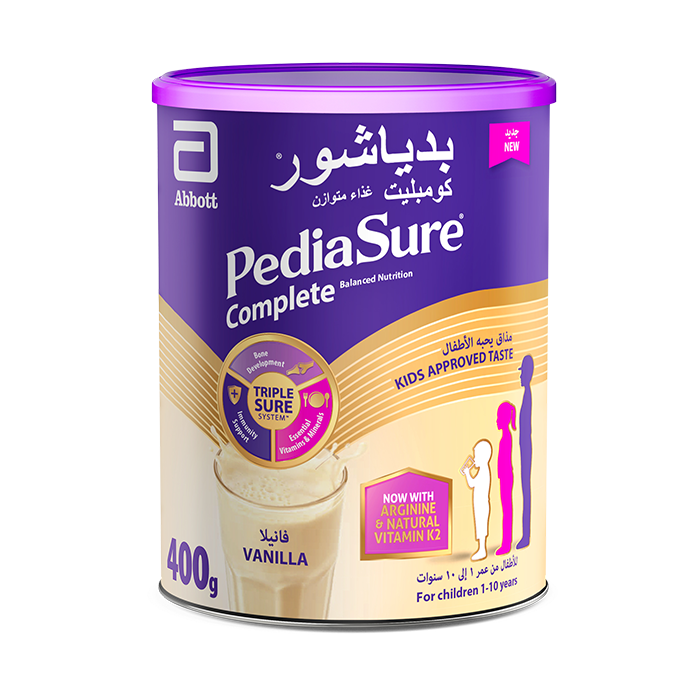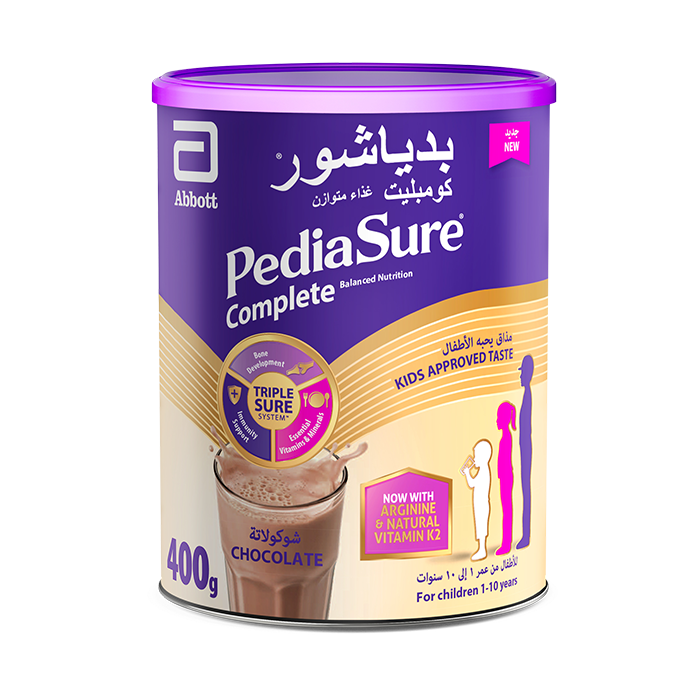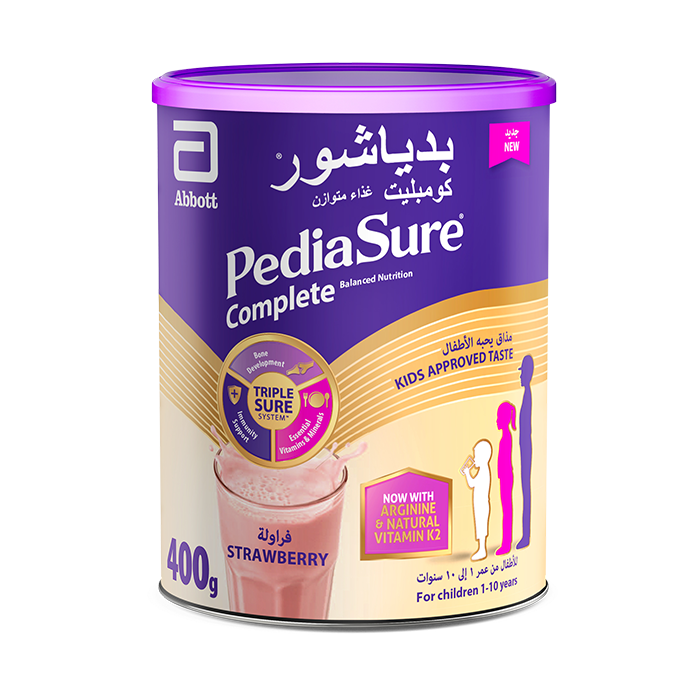Pediasure® Complete
- Main Image
-

- Subtitle
- Child nutritional supplement – From 1 to 10 years old
- Title
- PediaSure® Complete Vanilla
- Detail Page Path
Highlights the vital role of protein in building and repairing body tissues, supporting immune function, and overall growth.
Discusses daily protein requirements for children at various stages of growth, ensuring they meet their developmental needs.
Provides insights into various sources of protein, both animal and plant-based, suitable for children’s diets.
Protein is a macronutrient that is vital for children’s growth and development, especially during adolescence when they experience major growth spurts. However, research shows that one in seven school-aged children in the U.S. do not meet their daily protein intake goals1
If a child is growing slowly or is small for their age, they may not be getting all the protein and nutrients needed for healthy growth. The good news is that with a few changes, you can help your child get on track.
Learn how protein supports healthy growth, plus simple tips for packing more protein onto every plate.
Protein plays an essential role in many bodily functions, including recovery and repair of tissues in the muscles, skin, organs, blood, hair and nails. Of the 20 amino acids that make up protein, the body can produce 11 — the other nine must come from food.
“Many sources of protein provide important nutrients like vitamin E, B vitamins, zinc, iron and magnesium and its part of nearly every cell in your body,” says Jennifer Williams, MPH, nutrition research scientist with Abbott.
Williams added that children who don’t get enough protein may experience health issues, including fatigue, poor concentration, slowed growth, bone and joint pain, delayed wound healing and decreased immune response. But with small changes you can protect against protein deficiency.
Protein Sources for Adolescents
In previous literature, it was found that 1 in 3 teens, aged 7-14 years old, did not have proper breakfast or skipped breakfast3 . And, 2 in 5 school-age children made less healthy food choices which were mainly higher in saturated fats and low in fibre3. Skipping meals and making unhealthy food choices can hinder the intake of a complete, balanced diet.
Adolescents can be picky eaters, but luckily there are plenty of great options for adding protein to their diets outside of meals. “Milk is a really easy source of protein to give to kids, and it provides calcium and vitamin D, which are important nutrients for bone growth,” says Williams. She also recommends other dairy food like yoghurt and cheese, or poultry, red meat, fish, seafood, eggs. For vegetarians, one can also consider plant-based protein food like soy, tofu, tempeh, nuts, beans and legumes. If you are still having trouble getting enough protein on the plate, protein-rich complete, balanced Oral Nutrition Supplement (ONS) drinks can be one solution.
Meeting daily protein intake goals is an essential part of adolescent growth and development. When adolescents get the nutrition they need, they’re in the best position to begin long, healthy lives.
In addition to meeting protein intake, it is also important to support the intake of a complete, balanced diet to holistically support the growth spurt period of your teen.
Oral Nutrition Supplements (ONS) may help adolescents to plug nutritional gaps (e.g. for those with poor appetite), replace unhealthy food or drink options, or support an active lifestyle. The ideal ONS for your teen should be tailored to meet the increased needs for key nutrients during the period of accelerated growth. A complete, balanced ONS that supplies a wide range of micronutrients would be more advantageous than conventional beverages which tend to be less nutrient dense.




If you’re dealing with a picky eater, there’s nothing to worry about. It’s more common than you think. Check our content to learn how you can support your child’s nutrition.

Many parents are concerned about the normal weight and height of their children. They compare them with the other children of the same age to make sure that they are growing normally.

You already know that a growing kid needs a balanced diet full of nutrients, including vitamins and minerals. But what are some of the key nutrients children need.
ANI-IRQ-PN-2024-4352
You are about to exit for another Abbott country or region specific website.
Please be aware that the website you have requested is intended for the residents of a particular country or region, as noted on that site. As a result, the site may contain information on pharmaceuticals, medical devices and other products or uses of those products that are not approved in other countries or regions.
The website you have requested also may not be optimized for your specific screen size.
Do you wish to continue and exit this website?